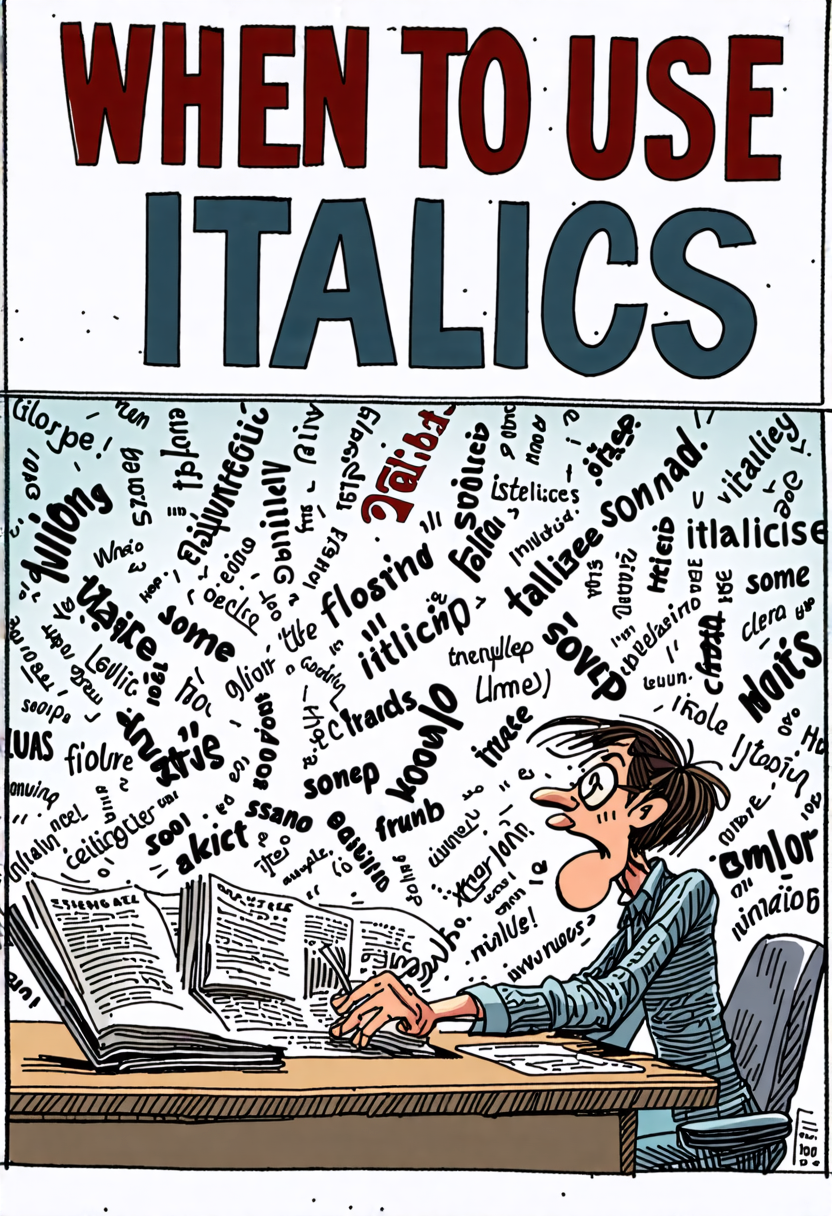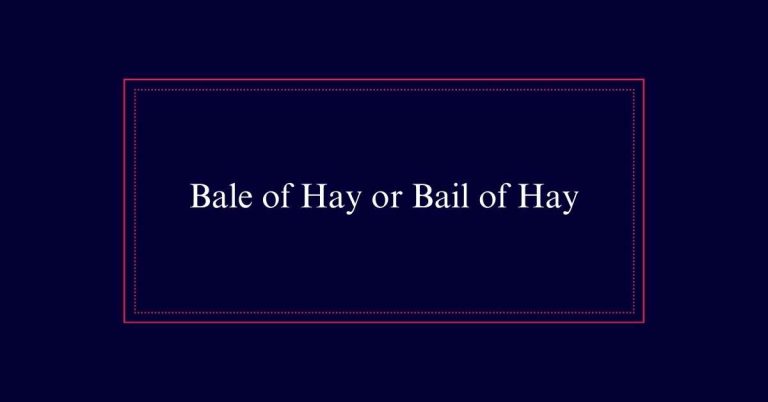When to Use Italics?
Italics are essential for enhancing readability and emphasizing key terms. Use them for book titles like *Pride and Prejudice*, and movie titles such as *Inception*. Italicize long literary works, for instance, *Hamlet* or *Paradise Lost*. Periodicals like *The New York Times* and podcasts such as *Serial* also require italics. Italics distinguish scientific names, e.g., *Homo sapiens*, and foreign phrases, ensuring clarity.
Purpose of Italics
Italics serve several critical functions in written communication. They enhance readability by visually distinguishing specific words or phrases from the main text. This differentiation is essential in academic writing, where italics may identify key terms or introduce foreign words.
Italics also provide emphasis without disrupting the flow of the text. This subtle emphasis helps convey the writer’s intent more clearly. Scientific names of organisms are another common use, where italics help avoid confusion and maintain consistency.
Moreover, italics are used for internal thoughts in narrative writing, giving readers insight into characters’ minds.
Titles of Books
When formatting titles of books, always use italics to distinguish them from the surrounding text. This practice helps to clearly identify the book title and separates it from other elements in your writing.
Here are some key points to remember:
- Fiction and Non-fiction Books: Italicize titles of novels, biographies, and other book-length works.
- Anthologies: Use italics for the titles of collections of essays, stories, or poems.
- Textbooks and Reference Books: Titles of educational and reference materials should also be italicized.
- E-books and Digital Publications: Make sure that digital book titles follow the same italicization rules as printed books.
Movie and TV Show Titles
Just as book titles are italicized to set them apart, the titles of movies and TV shows should also be presented in italics for clarity and emphasis. This helps readers immediately recognize these titles as distinct works.

For instance, when discussing the film *Inception* or the TV series *Breaking Bad*, using italics makes the titles stand out.
Epic Poems and Plays
Epic poems and plays deserve special attention in formatting, often being italicized to highlight their significance as substantial literary works. This practice guarantees that these grand narratives and dramatic expressions stand out.
Here are some key points to remember:
- Epic Poems: Works like ‘The Iliad’ and ‘The Odyssey’ should always be italicized.
- Classical Plays: Titles such as ‘Hamlet’ and ‘Oedipus Rex’ need italicization.
- Modern Plays: Contemporary works like ‘A Streetcar Named Desire’ also require italics.
- Long Poems: Poems of considerable length, such as ‘Paradise Lost,’ should be italicized.
News and Magazine Names
In typography, the names of news websites and magazines are commonly italicized to guarantee they stand out from other text. This practice helps readers quickly identify the titles of these publications.
For example, when writing about The New York Times or National Geographic, italics are used to distinguish these names. This is particularly useful in text where multiple types of sources are mentioned.
Italicizing names like The Wall Street Journal or Time magazine guarantees clarity and aids in visual organization.
Podcasts and Radio Shows
Podcasts and radio shows should be italicized to help them stand out in written text. Italics make these titles easily recognizable, ensuring clarity for readers.
When writing about podcasts and radio shows, remember the following guidelines:
- Titles: Always italicize the full title of a podcast or radio show, such as *Serial* or *This American Life*.
- Episodes: Use quotation marks for individual episode titles, for example, ‘The Case of the Missing Artwork.
- Hosts: Do not italicize the hosts’ names; simply use standard text.
- Series: If referencing a series within a show, treat it like an episode title and use quotation marks.
Legal Cases and Vehicles
How should one properly format titles of legal cases and vehicle names in written text? Legal case titles are always italicized, such as *Brown v. Board of Education*. This helps distinguish them from the rest of the text and clarifies their importance. Vehicle names, including ships, aircraft, and spacecraft, are also italicized. For instance, the ship *Titanic* and the spacecraft *Apollo 11* are italicized to highlight their significance.
Below is a quick reference table:
| Type | Example | Italicized |
|---|---|---|
| Legal Case | *Roe v. Wade* | Yes |
| Ship | *Titanic* | Yes |
| Spacecraft | *Apollo 11* | Yes |
Foreign Words and Phrases
Incorporating foreign words and phrases in text often requires the use of italics to signal their distinction from the primary language. This practice helps readers identify and understand that the terms are not part of the standard vocabulary. Italics are particularly useful for words that might be unfamiliar or not yet fully integrated into the language.
Here are some common instances where italics are used for foreign words and phrases:
- Culinary Terms: E.g., *entrée*, *sushi*.
- Cultural Expressions: E.g., *carpe diem*, *déjà vu*.
- Technical Jargon: E.g., *zeitgeist*, *modus operandi*.
- Untranslated Text: E.g., *à la carte*, *prima facie*.
Scientific Names
Scientific names, typically in Latin, are italicized to distinguish them from common names and to follow standardized conventions in scientific writing. This practice helps to clearly identify the genus and species of an organism.
For example, *Homo sapiens* refers to humans, while *Canis lupus* denotes the gray wolf. Italicizing these names avoids confusion and maintains consistency across scientific literature. The genus name is always capitalized, and the species name is lowercase. This format guarantees clarity and uniformity.
Italicized scientific names are universally recognized, making it easier for scientists around the world to communicate precisely about specific organisms. This standardization is essential in scientific documentation and research.
Emphasis in Writing
Italics are often used to emphasize words or phrases, providing subtle emphasis without disrupting the flow of the text. This technique helps draw the reader’s attention to specific points without the need for bold or underlining, which can be more visually intrusive.
Here are some common scenarios where italics are used for emphasis:
- Key Terms: Highlighting important concepts or terminology in educational or technical writing.
- Contrasts: Differentiating between contrasting ideas or words within a sentence.
- Personal Thoughts: Reflecting a character’s internal dialogue or thoughts in fiction writing.
- Uncommon Words: Emphasizing less common or particularly significant words in a passage.







